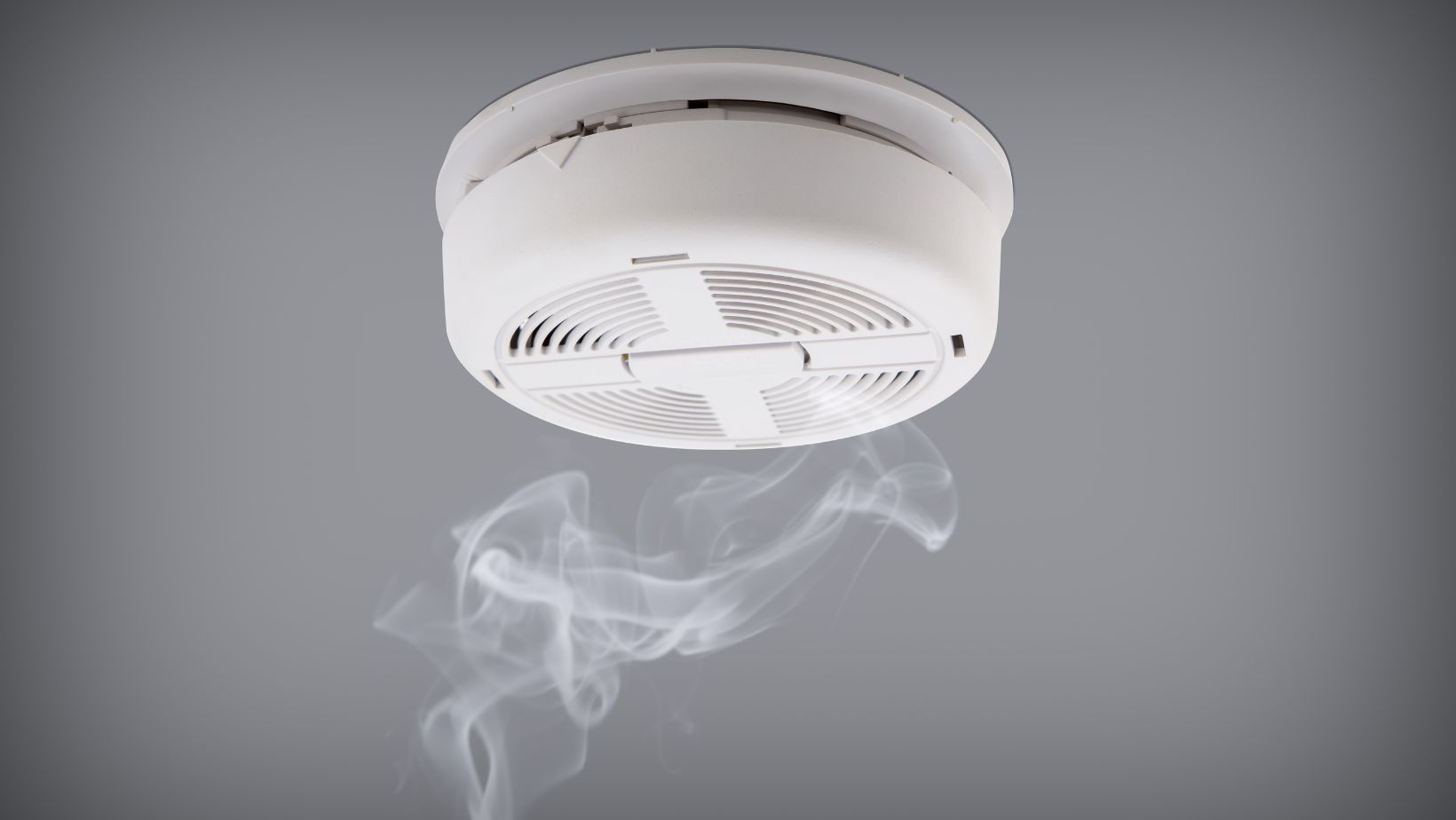Table of Contents
ToggleSmoke Detector for Garage
If you’re looking for a smoke detector specifically designed for your garage, you’ve come to the right place. A smoke detector for the garage is an important safety measure that can provide early warning in case of a fire outbreak. It not only helps protect your property but also ensures the safety of your loved ones and valuable belongings.
Having a dedicated smoke detector for your garage is crucial because garages often contain flammable materials such as gasoline, oil, paint, and other chemicals. These substances increase the risk of fire hazards, making it essential to have reliable detection in this area.
A garage smoke detector should be able to detect both smoldering fires and fast-flaming fires effectively. It should also have features like a loud alarm, battery backup, and interconnected capabilities with other detectors in your home. By investing in a high-quality smoke detector specifically designed for garages, you’ll have peace of mind knowing that you have an extra layer of protection against potential fire emergencies.
Choosing the Right Smoke Detector for Your Garage
When it comes to ensuring safety in your garage, having a smoke detector is of utmost importance. But with so many options available, how do you choose the right one? Here are some key factors to consider when selecting a smoke detector for your garage:
- Type of Smoke Detector: There are two main types of smoke detectors suitable for garages: ionization and photoelectric detectors. Ionization detectors are more responsive to flaming fires, while photoelectric detectors are better at detecting smoldering fires. Since garages often contain flammable materials and vehicles that can catch fire quickly, it’s recommended to opt for an ionization detector as they provide faster detection in such scenarios.
- Power Source: Smoke detectors can be powered by batteries or hardwired into your home’s electrical system. For garages, where power outages may occur frequently or where there may not be easy access to electrical outlets, battery-powered smoke detectors are a practical choice. Make sure to regularly check the batteries and replace them as needed.
- Sensitivity to False Alarms: Garages tend to have higher levels of dust, fumes, and temperature fluctuations compared to other areas of your home. To prevent frequent false alarms, consider choosing a smoke detector specifically designed for garages or those with adjustable sensitivity settings.
- Additional Features: Look for smoke detectors that offer extra features like carbon monoxide detection or interconnected capabilities with other alarms in your home. These added functionalities can provide enhanced protection against multiple hazards and ensure everyone in your household is alerted simultaneously in case of an emergency.
- Placement: Proper placement plays a crucial role in maximizing the effectiveness of your smoke detector in the garage. Install the alarm on the ceiling near any potential sources of fire such as heating systems or workbenches but away from direct airflow vents that could interfere with its operation.
Remember, regular maintenance is essential regardless of the type of smoke detector you choose. Test your smoke detector monthly, replace batteries annually, and clean the device periodically to ensure its optimal functioning.
Understanding the Different Types of Smoke Detectors
When it comes to ensuring the safety of your garage, having a smoke detector is essential. However, not all smoke detectors are created equal. There are different types available in the market that serve specific purposes and offer varying levels of protection. Let’s dive into understanding the different types of smoke detectors to help you make an informed decision for your garage.
- Ionization Smoke Detectors: Ionization smoke detectors are one common type found in many homes and garages. These detectors work by using a small amount of radioactive material to ionize the air inside the device. When smoke particles enter the chamber, they disrupt this ionization process, triggering the alarm. Ionization detectors are particularly effective at detecting fast-flaming fires commonly associated with combustible materials found in garages such as gasoline or paint thinner.
- Photoelectric Smoke Detectors: Photoelectric smoke detectors operate on a different principle compared to ionization detectors. They use a beam of light inside the device that gets scattered when smoke enters its chamber. This scattering effect triggers the alarm mechanism, alerting you to potential danger. Photoelectric detectors excel at detecting slow-burning fires that produce more visible smoldering smoke rather than quickly developing flames.
- Dual Sensor Smoke Detectors: As their name suggests, dual sensor smoke detectors combine both ionization and photoelectric technologies into one unit for enhanced fire detection capabilities across various fire types. By utilizing both sensing methods simultaneously, these devices can provide comprehensive coverage and reduce false alarms caused by cooking fumes or steam.
- Smart Smoke Detectors: With advancements in technology, smart smoke detectors have entered the market offering additional features and connectivity options beyond traditional models’ scope. These devices can send alerts directly to your smartphone or other connected devices when they detect potential fire hazards in your garage while also providing remote monitoring capabilities.
- Heat-Activated Smoke Detectors: Heat-activated smoke detectors, also known as thermal detectors, rely on temperature changes rather than smoke detection to trigger an alarm. These devices are ideal for garages where smoke or fumes are usually present and can cause false alarms with other types of detectors. Heat-activated detectors are effective in detecting fires that generate significant heat, such as electrical fires.
By understanding the different types of smoke detectors available for your garage, you can choose the one that best suits your specific needs. Whether you opt for an ionization detector for its ability to detect fast-flaming fires or a photoelectric detector for its sensitivity to smoldering smoke, having any type of smoke detector is a critical step towards ensuring the safety and protection of your garage space.






